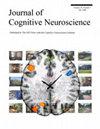Optogenetic Manipulation of Covert Attention in the Nonhuman Primate
IF 3.1
3区 医学
Q2 NEUROSCIENCES
引用次数: 0
Abstract
Optogenetics affords new opportunities to interrogate neuronal circuits that control behavior. In primates, the usefulness of optogenetics in studying cognitive functions remains a challenge. The technique has been successfully wielded, but behavioral effects have been demonstrated primarily for sensorimotor processes. Here, we tested whether brief optogenetic suppression of primate superior colliculus can change performance in a covert attention task, in addition to previously reported optogenetic effects on saccadic eye movements. We used an attention task that required the monkey to detect and report a stimulus change at a cued location via joystick release, while ignoring changes at an uncued location. When the cued location was positioned in the response fields of transduced neurons in the superior colliculus, transient light delivery coincident with the stimulus change disrupted the monkey's detection performance, significantly lowering hit rates. When the cued location was elsewhere, hit rates were unaltered, indicating that the effect was spatially specific and not a motor deficit. Hit rates for trials with only one stimulus were also unaltered, indicating that the effect depended on selection among distractors rather than a low-level visual impairment. Psychophysical analysis revealed that optogenetic suppression increased perceptual threshold, but only for locations matching the transduced site. These data show that optogenetic manipulations can cause brief and spatially specific deficits in covert attention, independent of sensorimotor functions. This dissociation of effect, and the temporal precision provided by the technique, demonstrates the utility of optogenetics in interrogating neuronal circuits that mediate cognitive functions in the primate.非人灵长类动物隐蔽注意力的光遗传学操纵
光遗传学为研究控制行为的神经元回路提供了新的机会。在灵长类动物中,光遗传学在研究认知功能方面的实用性仍然是一个挑战。该技术已被成功运用,但其行为效应主要体现在感觉运动过程中。在这里,我们测试了对灵长类动物上丘的短暂光遗传抑制是否能改变隐蔽注意力任务的表现,以及之前报道的光遗传对囊回眼球运动的影响。我们使用了一项注意力任务,要求猴子通过释放操纵杆检测并报告提示位置的刺激变化,同时忽略未提示位置的变化。当提示位置位于上丘神经元的反应场中时,与刺激变化同时出现的瞬时光照会干扰猴子的检测表现,显著降低命中率。当提示位置在其他地方时,命中率没有变化,这表明这种影响是空间特异性的,而不是运动障碍。只有一个刺激物的试验的命中率也没有变化,这表明该效应取决于对干扰物的选择,而不是低水平的视觉障碍。心理物理分析表明,光遗传抑制提高了知觉阈值,但仅限于与转导部位相匹配的位置。这些数据表明,光遗传操作可导致短暂且特定空间的隐蔽注意力缺陷,而与感觉运动功能无关。这种效应的分离以及该技术提供的时间精确性,证明了光遗传学在研究介导灵长类认知功能的神经元回路方面的实用性。
本文章由计算机程序翻译,如有差异,请以英文原文为准。
求助全文
约1分钟内获得全文
求助全文
来源期刊
CiteScore
5.30
自引率
3.10%
发文量
151
审稿时长
3-8 weeks
期刊介绍:
Journal of Cognitive Neuroscience investigates brain–behavior interaction and promotes lively interchange among the mind sciences.

 求助内容:
求助内容: 应助结果提醒方式:
应助结果提醒方式:


